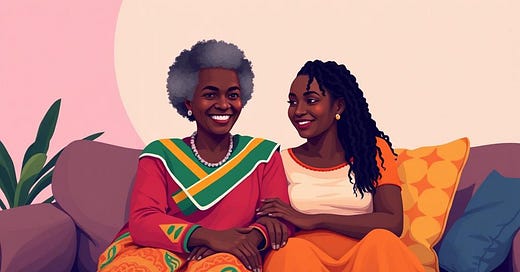Why I chose to live with my Mum in my 30s
Going against the grain of societal expectations - a guest column
Hi! This is Leyla from A Day Well Spent, a newsletter seeking pathways to more purposeful living.
What subscribers received recently:
Interoception: the secret power of listening to your body
Adaptogen plants: the ultimate natural remedies for burnout and stress?
You can subscribe with your email to ensure you never miss my posts:
Welcome to the final column from the guest writer season I’ve been hosting here A Day Well Spent — For a few weeks while I was on the road, I published some brilliant columns from guest writers and I really hope you have enjoyed them!
I hope to see you down in the comments for this last one.
If you appreciate this piece as much as I do, please let me (us!) know by tapping the ❤️ at the top or bottom or by forwarding it on.
You’ll be receiving writing from me again very soon and I can’t wait! Leyla
Why I chose to live with my Mum in my 30s
Going against the grain of societal expectations
by Navina Donata
Living with your parents in your thirties isn’t exactly a lifestyle choice you see on Instagram.
For a lot of people where independence is almost a rite of passage, the idea of co-living with your mum well into adulthood can raise more than a few eyebrows.
Yet here I am, living with my mother.
Not because I can’t afford to live on my own. I’m here because I chose this, a life that’s filled with shared moments, family warmth and — yes — the occasional bout of frustration.





